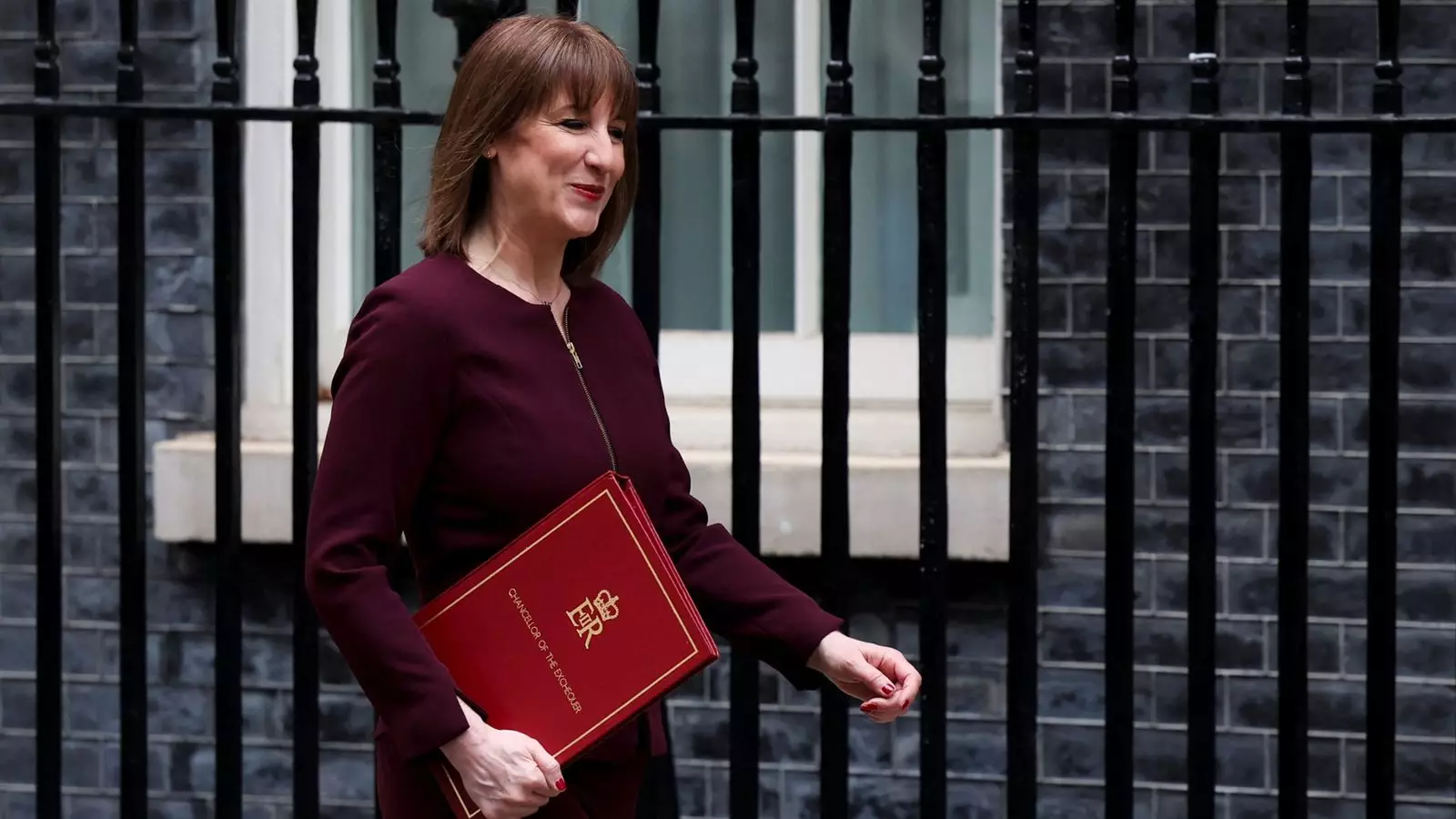The recent announcement from the Office for Budget Responsibility (OBR) to halve the UK growth forecast for 2025 from 2% to 1% raises alarm bells for anyone with a stake in the nation’s economic fabric. Chancellor Rachel Reeves delivered this unwelcome news during her spring statement, a moment that should have been ripe for optimism yet instead resonated with caution and skepticism. While an optimistic view emerges from the OBR’s projections post-2025, placing growth at 1.9% in 2026 and backtracking slightly thereafter, these figures leave much to be desired. Diminished growth ratings echo a broader malaise brewing beneath the surface of optimistic rhetoric.
It’s difficult to overlook the reality that a 50% cut in such forecasts feels less like a redirection of policies and more a testament to the underlying fragility of the economy. Reeves, despite her assertions of long-term planning, seems to embody a government scrambling for solutions that are at best band-aids on a larger wound. The urgent need to face economic stagnation head-on is squarely placed in front of the policymakers, yet the political theater that follows often distracts from meaningful action.
Promises vs. Reality
Chancellor Reeves proclaimed that “there are no shortcuts to economic growth,” waxing poetic about the intricate dance required to rejuvenate the economy. However, the truth is that this proclamation sounds eerily similar to past political narratives that promise miracles and deliver little tangible benefit. The repeated mantra of needing “time” and “hard work” feels inadequate. Citizens want to see visible results, not just a protracted timeline laden with potential future gains.
Changes to the National Planning Policy, including mandatory housing targets and the controversial move to develop “grey belt” land, promise an increase in real GDP by 0.2% by 2030. A minor uptick indeed when one considers the urgent societal need for affordable housing, better infrastructure, and job creation. The added £6.8 billion in the economy sounds impressive on paper, yet in practice, this might barely scratch the surface of what’s required to elevate the UK’s economic standing amid a globally competitive landscape.
The Struggle for Authentic Reforms
While the announcement of reforms ranging from pension systems to a national wealth fund signals an intention to maneuver towards constructive change, skepticism abounds regarding the authenticity and timeliness of these reforms. A true shift requires not just well-meaning policies but also decisive action that trickles down to effect real change in lives. The current strategy feels more like window dressing than a genuine commitment to revitalizing the economy.
Additionally, the notion of moving from a deficit of £36.1 billion to a surplus soon seems like a precarious balancing act, especially when these figures are contingent on cutting welfare budgets, which hit vulnerable populations hardest. The proposed savings of £4.8 billion from such cuts reflect a troubling prioritization of fiscal health over social welfare. Critics, including Shadow Chancellor Mel Stride, reprimanded Reeves with biting accusations of her fiscal management being a “gamble.” With the ghosts of past missteps lingering, such critiques call into question the cherished notions of responsibility in governance.
In Search of Coherent Strategy
As public servants begin to brace for a voluntary redundancy scheme under the pretense of a “lean government,” skepticism lies in the air. Will these cuts foster an effective administrative framework, or merely leave a hollow shell of a public sector? The ambitious plans to elevate the defense budget to 2.5% of GDP embody a skewed priority that risks overlooking pressing domestic issues, all while citizens grapple with the realities of an economy that many feel is outpacing their needs.
Reeves’s calculus appears remarkably naïve if not dangerously reckless. The interplay of optimistic projections against stark realities leaves much to unpack. For all the bravado in her language, investors, businesses, and the public are searching for a coherent strategy that acknowledges the pressing issues while cultivating a sense of hope. Growth should not just be statistical jargon; it must be palpable, affecting the lived experience of every citizen in a meaningful way. The fiscal roadmap must translate intentions into grounding, well-thought-out policies that address the structural weaknesses currently evident in the economy.
Discourse surrounding economic stewardship in the UK needs to evolve past the theatrics of political announcements. Instead, we must demand tangible progress rooted in real-world implications that shake the narrative of complacency for good.

